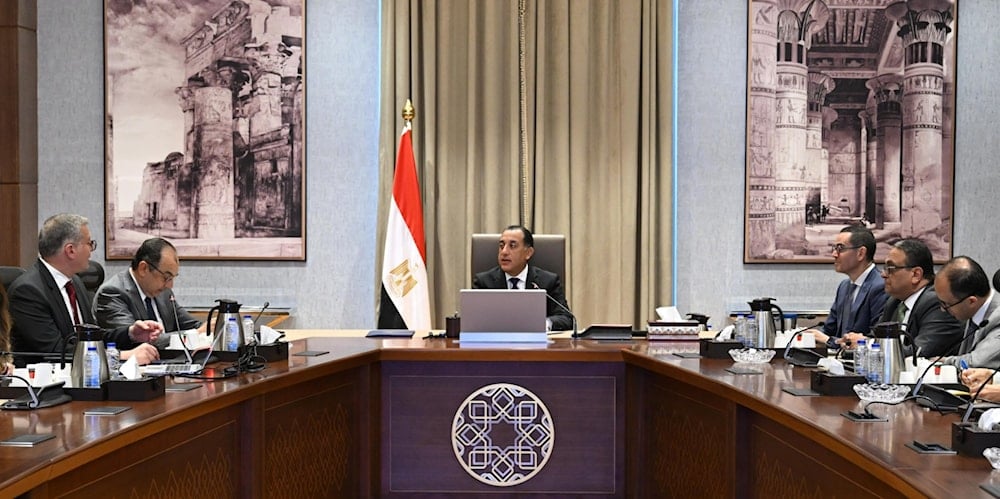Egypt forms high-level crisis committee amid regional escalation
Egypt has formed a high-level crisis committee, comprising top ministers, security officials, and economic planners, to monitor the escalating regional situation.
-

Mostafa Madbouly, the Prime Minister of Egypt, held a meeting in Cairo on June 16, 2025 (https://www.cabinet.gov.eg/)
Egypt has moved to establish a high-level crisis committee aimed at preparing the state for the potential regional repercussions of the escalating military situation in the region, following "Israel's" large-scale and unprovoked strikes on Iranian territory.
The move comes as Cairo publicly condemned the Israeli assault as a "blatant and extremely dangerous regional escalation" and a "flagrant violation of international law and the UN Charter," warning that such actions threaten to plunge the region into broader instability.
On Monday, Egyptian Cabinet spokesperson Mohamed El-Homsani announced that Prime Minister Mostafa Madbouly had issued a decree forming the committee, which is tasked with tracking developments in light of what he described as the rapidly evolving situation caused by "the military escalation between Iran and Israel."
El-Homsani explained that the committee will be led by Madbouly and includes a wide range of senior state officials, such as the governor of the Central Bank and ministers of key portfolios, including industry, planning, international cooperation, electricity, finance, supply, and petroleum. Representatives from Egypt's defense and interior ministries, along with intelligence and oversight agencies, will also participate.
"The prime minister will hold regular meetings with the committee to follow up on developments," El-Homsani stated, noting that "there is intensified coordination with advisory committees to examine the implications of the regional escalation on Egypt's economy, energy security, supply chains, and national preparedness, within a proactive framework to address any direct or indirect consequences."
Nuclear imbalance
Egypt's firm stance against Israeli provocations predates the June 13 assault. On June 2, Foreign Minister Badr Abdelatty met with IAEA Director General Rafael Grossi and renewed Egypt's longstanding call for the Zionist entity to join the Nuclear Non-Proliferation Treaty (NPT).
Abdelatty stressed that "Israel remains the only party in the region that has not joined the NPT and refuses to place all its nuclear facilities under the agency's safeguards," a posture that he warned has destabilized the region for decades.
While Iran has been subjected to relentless monitoring despite its peaceful nuclear program, "Israel" continues to act with impunity, shielded by Western powers and exempt from all international oversight.
Read more: MBS says Islamic world backs Iran in call with Pezeshkian
Earlier today, Iran's representative to the IAEA told Al Mayadeen that Tehran's continued commitment to the NPT now depends on the international response to the latest wave of Israeli aggression.
"Israel bears full responsibility for any step toward withdrawing from the NPT," the Iranian delegate declared.
Speaking after an emergency session of the IAEA Board of Governors, the Iranian representative warned the agency against repeating its earlier failures. "I urge the Board not to let its preliminary failure to prevent this aggression be followed by another," he said.
He called for decisive action, urging the agency to "condemn this act of aggression in the strongest possible terms, and hold the perpetrators accountable."
"Failing to do so would amount to appeasement of an aggressive regime, one that is, in fact, committing genocide and deludes itself into thinking Iran is incapable of defending itself," the representative asserted.

 3 Min Read
3 Min Read










